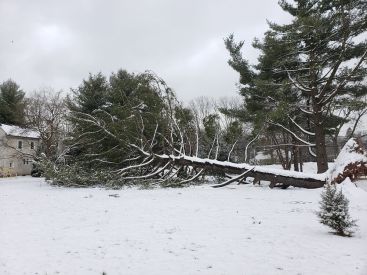Tree Root Health and Root Zone Invigoration
Trees are an essential part of any landscape, providing shade and other benefits that make them an attractive option for homeowners. However, tree roots need to be healthy and strong for the tree to survive. Root zone invigoration (RZI) is a process that helps ensure the health of trees.
Root Zone Invigoration Process
Root zone invigoration (RZI) is a process that helps ensure the health of trees. RZI will improve tree growth and help prevent disease and insect problems. The process can also reduce irrigation requirements by increasing water absorption deep in the soil profile. The process can benefit drought-stricken areas or regions where water use restrictions are in place.



Why Trees Need RZI
Plants need healthy, biologically active, well-drained, and well-aerated soil to thrive. Unfortunately, most landscape plants are growing in compacted or otherwise unhealthy soil, with little or no pore space for oxygen and water penetration. A tree’s roots absorb water and nutrients so when a tree’s root system is compromised by poor soil conditions, or events like construction work, root invigoration is a good solution.
Root Depth
If a tree’s roots lack depth or strength, the tree may be unable to withstand adverse weather conditions. A shallow root system could mean that a tree will lack the proper stability to remain upright during high winds, for example.
Root Health
A healthy root system is essential for good health overall. Roots are responsible for absorbing water and nutrients from the soil, so a tree will struggle to survive if the roots are damaged, compacted, or broken off. Damage can occur when construction work occurs in areas where trees grow, such as during road construction near forested areas.
Minerals & Nutrients
Young trees absorb nutrients from the soil through their roots. As a result, if the soil lacks a particular mineral or nutrient, the tree can have difficulty growing correctly and developing into a healthy adult tree.
Preventing Health Issues
Without enough carbon dioxide (CO2), trees are unable to produce the sugars needed for energy and growth. If CO2 levels are too low, leaves will become pale green or yellowish-green instead of dark green and chlorophyll-rich. In addition, the tips of branches may turn brown due to a lack of photosynthesis. Eventually, these branches can die off altogether, leaving bare trunks without leaves.
How Root Zone Invigoration Works
Burkholder PHC root zone invigoration makes use of an air spade. This spade directs compressed air to break apart heavy, compacted soil, without damaging the root system of the plants. Performing root zone invigoration effectively and safely requires knowledge of arboriculture and experience, so hiring a certified arborist is recommended if your trees need root zone invigoration.
Benefits of Root Zone Invigoration
Root zone invigoration helps to decompact thick clay soil and adds pore space for adequate water and air. Root-zone invigoration can be utilized on established trees as well as in preparation for new plantings, and gives the opportunity to amend the soil with nutrients, rich compost, and soil conditioners.
Our plant health care experts may treat trees with RZI after disturbances like erosion, soil removal, or construction work so the trees can continue to uptake needed water and nutrients.
Contact Burkholder PHC for Root Zone Invigoration
For preferred and high-value plants or those that are beginning to show signs of decline, root-zone invigoration is the most beneficial service that you can give them. If you believe that your trees need root zone invigoration, send us an email or give us a call. Burkholder PHC has a team of experienced, qualified arborists who will visit your property, conduct a plant health care evaluation, diagnose the problems, and inform you of the recommended treatment options. In addition, we provide a proactive approach to maintain your trees’ health and appearance. Contact us today for a free consultation.

